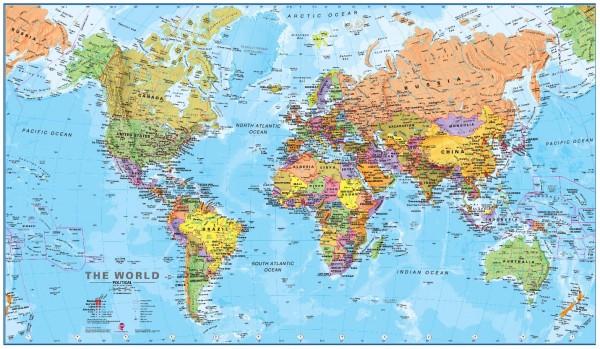Russia‘s drift toward recession has slashed Carlsberg‘s sales in the country, while fellow brewer Heineken escaped the worst thanks to its smaller exposure to eastern Europe.
Carlsberg’s dependence on Russia, where its Baltika label is the most popular beer brand by far, makes it a test case for how European companies are coping with the chill in Moscow’s relations with the European Union caused by the conflict in Ukraine.
Sanctions have dented confidence in an already slowing economy and taken a toll on the rouble currency – a blow for European companies that invested heavily to tap Russia’s emerging middle class.
One brokerage said last week that Carlsberg was becoming “uninvestable” because the sanctions had tarnished its status as a stable consumer-goods investment play. ( http://bit.ly/1w8n02o )
On Wednesday, the company cut its 2014 profit guidance and said its Russian beer sales tumbled by one fifth in the second quarter. The 167-year-old Danish brewer relies on Russia for more than a third of its operating profits.
Finance chief Jorn Jensen said the Russian downturn had been even worse than expected. Carlsberg cut its guidance for the second time this year and now sees annual operating profit going into reverse. It may even close breweries in eastern Europe.
Carlsberg shares fell as much as 6 percent.
“They are already downgrading now and not waiting for more clarity – it shows they believe the second half will be very tough in Russia,” said analyst Michael Friis Jorgensen from Alm. Brand Bank, who has a “neutral” rating on Carlsberg shares.
HEINEKEN LESS EXPOSED
Heineken said its sales volume in Russia fell by a “low-double digit” percentage, without being more specific. But its shares leaped by more than 7 percent as overall quarterly earnings beat expectations.
“We are a very diversified company so this is where our large footprint saves us. We don’t depend on Russia and the exposure is not a problem,” Heineken Chief Executive Jean-Francois van Boxmeer told a conference call.
Heineken’s central and eastern European business contributed just 8 percent to operating profit. The Amsterdam-listed brewer makes Europe‘s best-selling Heineken lager as well as Sol and Tiger and Strongbow cider.
Carlsberg has barely a toehold in the Americas and Middle East and Africa – regions that accounted for about a quarter of Heineken’s sales by volume in 2013, according to consumer market researcher Euromonitor International.
“(Heineken) has made acquisitions such as FEMSA in Mexico and they’ve taken full control of Asia Pacific Breweries in Southeast Asia,” said KBC Securities analyst Wim Hoste said.
“All of that has helped to give Heineken an international character and means that unlike Carlsberg they’re not dependent on one single market.”
NOT “UNINVESTABLE”
Carlsberg’s Baltika breweries were established just as the Soviet Union collapsed. After privatization, its beers such as the 8 percent-strong Baltika 9 brand spread rapidly through Russian-speaking regions. Carlsberg bought the company in 2008.
It is one of several European companies blaming Russia for a weaker performance in the second quarter – though most have pointed more to the effect of the weaker rouble on repatriated revenue than a decline in business in the country.
Adidas , the world’s number-two sportswear firm, said last month it was reining in investment in Russia, where it runs more than 1,000 stores, and cut its profit target due to the ruble’s fall and increasing risks to Russian consumer sentiment.
“These European companies exposed to Russia have not become ‘uninvestable’, but there is a pressure on earnings,” said Antonin Jullier, Global Head of Equity Trading Strategy at Citi.
“Given that we are in a phase of the cycle that looks at earnings momentum, that’s why these stocks are going through a re-rating.”
Adidas shares have fallen 35 percent this year, while Carlsberg is now down 13 percent, compared to a 2 percent increase in the pan-European FTSEurofirst 300 index .
Investors do not appear to be dumping European equities across the board because of Russia.
Caroline Vincent, a fund manager at Cavendish Asset Management, said Russian sanctions could cause short-term volatility on stocks like Adidas but would not necessarily alter their underlying, long-term business trends.
“I would be mindful of Russian sanctions on Europe when investing, as opposed to out-and-out avoiding certain European companies exposed to them,” she said.
Despite the Russian problems, Carlsberg said operating profit rose 6 percent to 3.6 billion Danish crowns in the second quarter, higher than the 3.43 billion profit consensus analyst forecast in a Reuters poll.
Heineken’s operating profit before one-time items grew 9.6 percent in the first half of the year to 1.454 billion euros ($1.93 billion), above the 1.367 billion poll consensus.
Heineken said it saw slowing growth in the second half but that profit margin growth would be greater than forecast and it had already exceeded a target for cost savings.
(1 US dollar = 5.6031 Danish crown)
Source: http://money.msn.com/


